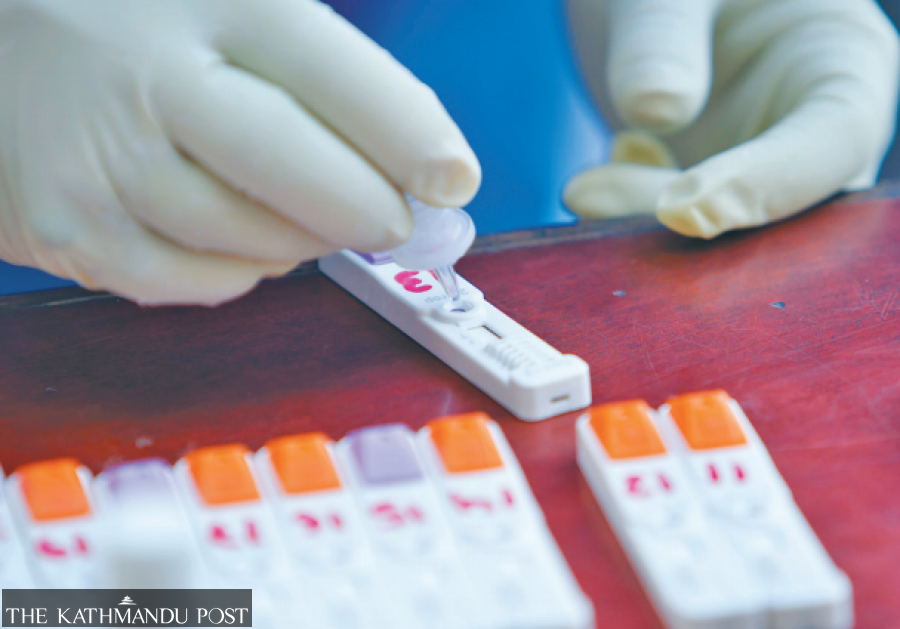Health
Health ministry to fast-track purchase of Covid testing kits
Nepal has 19 active coronavirus cases as of Wednesday, according to the ministry.
Post Report
Amid concerns about the spread of coronavirus cases, the Ministry of Health and Population has been preparing to fast-track the purchase of testing kits—both of the polymerase chain reaction (PCR) and antigen variety.
Officials said that the ministry has also asked the agencies concerned under the provincial governments to arrange the testing kits on their own, for which they will be reimbursed later.
“A decision has been made to purchase testing kits on an emergency basis,” said Dr Hemanta Ojha, an official at the Epidemiology and Disease Control Division. “The decision is in line with the emergency response plan.”
Most laboratories having PCR testing facilities including the Provincial Public Health Laboratory of Sudurpaschim reported a lack of testing kits. Similarly, health desks set up at the international land crossings complained about the shortage and expiration of antigen test kits.
Officials said that it would take a long time to purchase testing kits by following the normal process of the Public Procurement Act.
“If the new cases of infection rise like in the past, and if we do not purchase testing kits immediately, we will not be able to carry out testing,” Ojha said. “To avoid a crisis, we have decided to fast-track the purchase of the testing kits.”
Along with the testing kits, most laboratories lack trained personnel to carry out testing, as the lab technicians hired during the coronavirus pandemic were laid off following the decline in new cases of infection.
Of late, Nepal has seen a surge in new cases of coronavirus infection. The Health Ministry has confirmed the spread of JN.1 sub-variant of the coronavirus in the infected people.
Several countries, including India, China, Indonesia, the Philippines, Malaysia and Singapore, have reported upticks in new coronavirus cases.
The JN.1 strain, first detected in September in the United States, is a descendant of BA.2.86, a highly mutated variant of the Omicron strain of Covid-19
The World Health Organisation has classified JN.1 as a separate ‘variant of interest’ given its rapid spread around the globe. The UN health body, however, said that based on available data, “the additional public health risk posed by JN.1 is currently evaluated as low”.
The Health Ministry said that there are 19 active coronavirus cases on Wednesday.
Virologists and infectious disease experts have asked Nepali authorities to step up vigilance as the JN.1 sub-variant has proved to be highly contagious.
“The season of marriage has started and people will also be engaged in various festivals in the country,” said Dr Sher Bahadur Pun, chief of the Clinical Research Unit at Sukraraj Tropical and Infectious Disease Hospital. “We should keep in mind that the risk of infection grows from the crowds.”




 10.12°C Kathmandu
10.12°C Kathmandu













